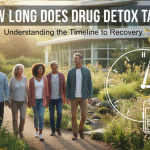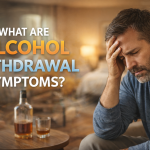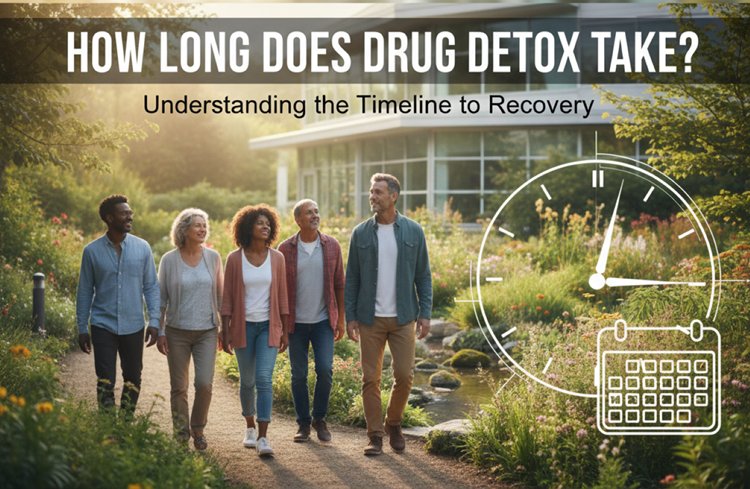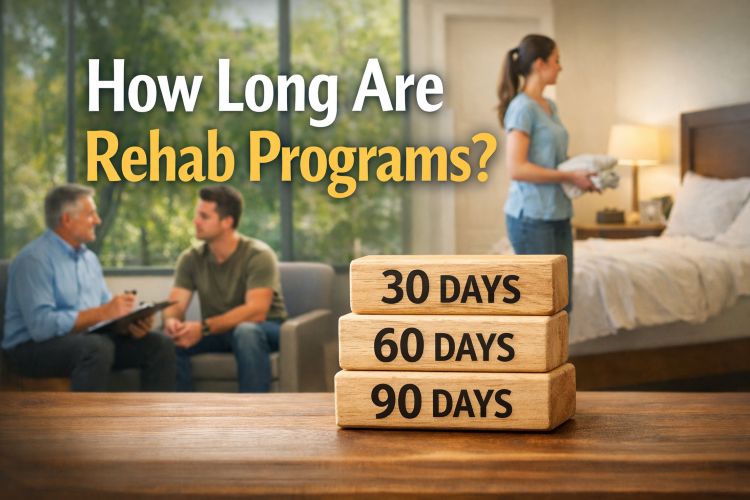Supporting a loved one as they recover from addiction can be greatly important to them. Everyone moves forward differently, as recovery often includes several ups and downs. If you are a friend or relative, you may experience overwhelm, uncertainty or not know what to do. You need to realize, you play a key role in their process of healing.
Our guide will show you how to help your loved one practically and with care when recovering from addiction. This information will support you in showing empathy, setting the right limits and cheering someone on helpfully without allowing their negative actions.
Understanding Addiction and Recovery
You should make sure you know what your loved one is experiencing. People with addiction do not choose it; their brains are affected in ways that impair judgment, control impulses and regulate emotions. Quitting drugs or alcohol is just the beginning; recovery means helping yourself become stronger inside and out.
Brain injury recovery does not happen all at once; it takes time. Often, the plan has therapy, participation in support groups, MAT and modifying one’s lifestyle, contacts and routines. It is important that your help stays consistent with how long the process takes.
Start with Compassion and Patience
Frequently, people in recovery feel shame, guilt and fear. It helps your loved one most if you handle the situation with understanding, not with harsh words. Even if they’ve caused you harm in the past, remember that they are trying to get better.
Do not use strong language, point the finger or become emotional. Words you can choose could be:
- You should be proud of yourself for your decision.
- “Did it come out the way you wanted? I believe in you.”
- I am ready to join you in your journey, not measure or review your journey.
You need to be patient. A relapse could happen. It is possible for progress to happen over a long period. However, your constant, peaceful kindness can provide the safety that folks in recovery are seeking.
Educate Yourself About Addiction
To help someone, you must try to understand what issues they are facing. Find information on how addiction works, the various steps of healing and the feelings that arise during the process. It’s important to know what detox means. What is the meaning of sober living? How exactly do 12-step programs help?
Here’s a list of credible resources for you to use:
- The Substance Abuse and Mental Health Services Administration (SAMHSA)
- National Institute on Drug Abuse (NIDA).
- For some, Alcoholics Anonymous (AA) is more helpful; for others, it’s Narcotics Anonymous (NA).
The more information you have, the better you can support someone without making things even harder for them.
Create a Safe and Sober Environment
Supporting your loved one can be very helpful if you keep their surroundings safe for healing. If they’re avoiding alcohol or drugs, do not use them when they’re with you. Remove things in common areas that might cause a reaction. Help them stay away from dangerous people or places.
- You can achieve positive results by making a few small alterations.
- Don’t grab drinks for yourself at home
- Plan activities you can all do together that don’t involve alcohol.
- Make sure they are kept busy with healthy and uplifting habits.
- Getting healthy depends on feeling safe and secure. A regular and predictable environment makes it simpler for them to continue.
Set Healthy Boundaries
Putting yourself on the back burner is not necessary when you want to help someone in recovery. To put it simply, setting healthy boundaries helps you and your family.
- When you have boundaries, you are less likely to tolerate enabling behaviors.
- Trying to hide their errors
- Money given can be misused.
- Giving excuses for their behavior to our coworkers or families
- But you could use one of these strategies:
- Let your child know what you are willing and unwilling to allow
- Even if it’s difficult, make sure to only spend what you can afford.
- Motivate students to take care of their individual and collective actions.
Boundaries serve to defend us, not to punish us. They open new learning opportunities for your loved one and also help you care for yourself emotionally.
Be Supportive, Not Controlling
Everyone wants to make things better. It’s important to realize that recovery won’t happen by force. You need to be there for support, not be their main support.
Trust your child to handle most details of their recovery. Instead:
- Accept what treatment they choose.
- Guide users to change their oil only when they come to you for guidance.
- Don’t try to make your partner feel guilty or manipulate them emotionally
- Should they backslide, do not say, “I saw this happening.” So, you might ask, “What will help you get back on track today?”
- Having a calm attitude earns trust and promotes independence, which are both important for learning to live without drugs.
Encourage Professional Help
Although you care and support the person, you still aren’t their therapist. Encouraging someone to seek professional attention is a great thing.
Examples include:
- Rehab in a hospital versus rehab done at home
- Individual counseling
- Meeting in groups where people with diabetes exchange support
- Many now use medication-assisted treatment to help.
If they’re uncertain, say you’ll help them investigate or go with them to a meeting. Don’t try to force or embarrass someone. We want to lead them toward making good health decisions, not make them do it.
Don’t Forget to Support Yourself
Supporting someone trying to recover can take a lot out of you emotionally. Due to this, taking care of yourself is a must.
Try joining groups where people with the same condition meet:
- Al-Anon meetings are for anyone with an alcoholic in their family.
- Nar-Anon which is for the families of substance abusers
- Finding a therapist for your issues or the whole family
Let your close friends know what you’re going through. Practice self-compassion. Taking a little rest is important when you need it. If you don’t fill yourself up first, you won’t be able to help others. When you take care of your health, you have more energy to support you loved one.
Appreciate Any Progress You Make
No step you take in your journey should be discounted. If it’s only their first day without alcohol or if they’ve been to therapy for a month, show support for what they’ve done.
Photographers deserve encouragement, so celebrate them with heartfelt words, a lively meal or a relaxing trip. See to it the reward isn’t at any place that could prompt you with triggers (like where alcohol or drugs are involved).
Build their confidence by saying:
- You’ve made great progress—don’t stop now.
- You managed that situation properly.
- “I can tell you are growing.”
- Daily use of these thoughts strengthens their motivation and gives them additional confidence.
Practice Forgiveness
Many times, addiction leads to serious emotional pain. Surviving dishonesty, backstabbing and unmet promises can leave us hurt for a long time. Forgiveness isn’t about forgetting or approving bad actions; it helps you move on and begin to feel better.
When your loved one is in recovery, you should know it’s acceptable to:
- Try to let go of the hurt from the past
- Building trust should start gradually.
- Look at what they are developing into, not at what they used to be.
- Forgiveness is a present to you and the one you need to forgive.
- Become and remain a continued presence in baseball.
Getting through addiction is not as easy as completing an exercise in 30 days—it continues for life. Addiction tends to have relapse rates just as high as diabetes or hypertension. That’s why it is so important for you to help more.
Stay Involved for the Long Haul
- I like to check in on my friends regularly.
- Going to support meetings when you are invited
- Guiding people in tasks that involve looking for work, doing errands, and using transportation
Still, remember that being involved shouldn’t end up overwhelming your child. You should make sure you are available at all times, but don’t suffocate the other person.
Your Support is Essential for Survival
Being there for someone who wants to overcome addiction is not easy, but you don’t have to manage it on your own. Palm Coast Treatment Solutions helps guide both individuals and their families with positive and clinically legitimate treatment plans throughout their recovery journeys.

Regardless of whether your loved one wants help or you are unsure how to help, we are here as a support.
Call us at (386) 284-4151 now or reach us online to find out how Palm Coast Treatment Solutions can help your family heal.






















